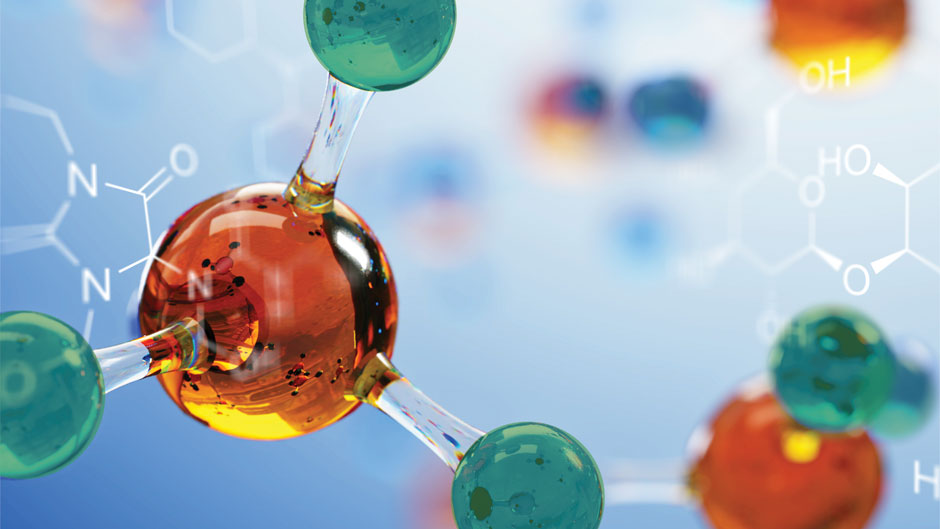Just a sophomore at Arizona State in 1978, Thomas J. Meade was so determined to work in a lab he spent a day knocking on every lab door in every science department, from biology to physics to geology, searching for anyone willing to give an undergraduate hard-core scientific experience.
Luckily for Meade, who will present the inaugural The Future of Chemistry seminar sponsored by the University of Miami Frost Institute of Chemistry and Molecular Science (FICMS) on Wednesday, he bumped into his freshman chemistry teacher, a legend in inorganic chemistry who put the sophomore to work drying solvents in his lab.
“I didn’t care if I would be cleaning glassware, or tables, or what,” Meade, the founder of four biotech companies and holder of 80-plus patents, said in a 2018 interview. “It didn’t matter.”
But that chance encounter would make a huge difference to clinicians who are treating cancer, heart disease, or other life-threatening ailments like the often-fatal pediatric lysomal storage diseases that are the subject of Meade’s talk at 3:45 p.m. at the Wilder Auditorium in the Knight Physics Building.
Over the next four decades, Meade, now the Eileen M. Foell Professor of Cancer Research and the director of the Center for Advanced Molecular Imaging at Northwestern University, developed electronic biosensors that can detect diseases like cystic fibrosis, handheld devices that detect proteins such as those produced from heart attacks, and bio-activated magnetic resonance contrast agents for in vivo imaging of cancer.
Leonidas G. Bachas, the dean of UM’s College of Arts and Sciences who is serving as interim director of the FICMS, and its umbrella organization, the Frost Institutes of Science and Engineering, said Meade is an ideal person to launch a lecture series designed to “envision how to expand the boundaries of chemistry,” the science central to all sciences—and to the Frost Institutes’ first interdisciplinary research center.
A five-story, 94,000-square-foot building, the FICMS is expected to break ground next year just east of Memorial Drive on the Coral Gables campus.
“People like Dr. Meade want not only to do great science, but they want to do science with a mission and there’s no doubt that underlying principle was on his mind when he started,” Bachas said. “He didn’t know where he was going, in terms of which experiments he would be doing years down the road, but his guiding principle was ‘I want to solve problems and I want to solve problems that will help humanity.’ And that will be the Frost Institutes’ guiding principle.”
Patterned after the National Institutes of Health and its network of institutes, the Frost Institutes were conceived to elevate the University’s collaborative science, technology, engineering, and mathematics enterprises to address some of the most pressing problems confronting the world. A key initiative of the Roadmap to Our New Century, the concept took flight when UM’s longtime benefactors, Philip and Patricia Frost, made a landmark $100 million gift to create a multidisciplinary research hub focused on scientific discovery and solutions.
Meade, who is a member of the FICMS advisory board, was instrumental in establishing Northwestern’s Chemistry of Life Processes Institute, which was created in 2005 to stimulate interdisciplinary biomedical research across all of the colleges, schools, and hospitals at Northwestern, where Meade is a professor in the Departments of Chemistry, Molecular Biosciences, Neurobiology, Biomedical Engineering, and Radiology. At the CLPI, chemists work with biologists, engineers, physicists, and clinicians to find new treatments for cancer and other diseases, and to develop cutting-edge tools for drug discovery and development.
At his lecture this Wednesday, Meade plans to focus on one of his discoveries, a non-invasive platform of bioresponsive MRI contrast agents that he and his collaborators developed to track the efficacy of gene therapy trials aimed at treating lysomal storage diseases (LSDs). Caused by mutations in enzymes responsible for protein and lipid degradation and recycling within the cell, LSDs are often fatal in children.
But Meade, who earned his master’s degree in biochemistry and a Ph.D. in inorganic chemistry from Ohio State University and completed postdoctoral research and radiological training at Harvard Medical School, and a post-doctoral fellowship at the California Institute of Technology, will likely be happy to discuss the value of interdisciplinary collaboration he learned from his most significant mentors, too.
“No two disciplines of the same flavor could be adjacent to each other,” Meade told the Research Corporation for Science Advancement in 2018. “And of course that had a significant impact because my neighbors were doing science that I wasn’t familiar with, but I could absorb and start to do things with them.”

